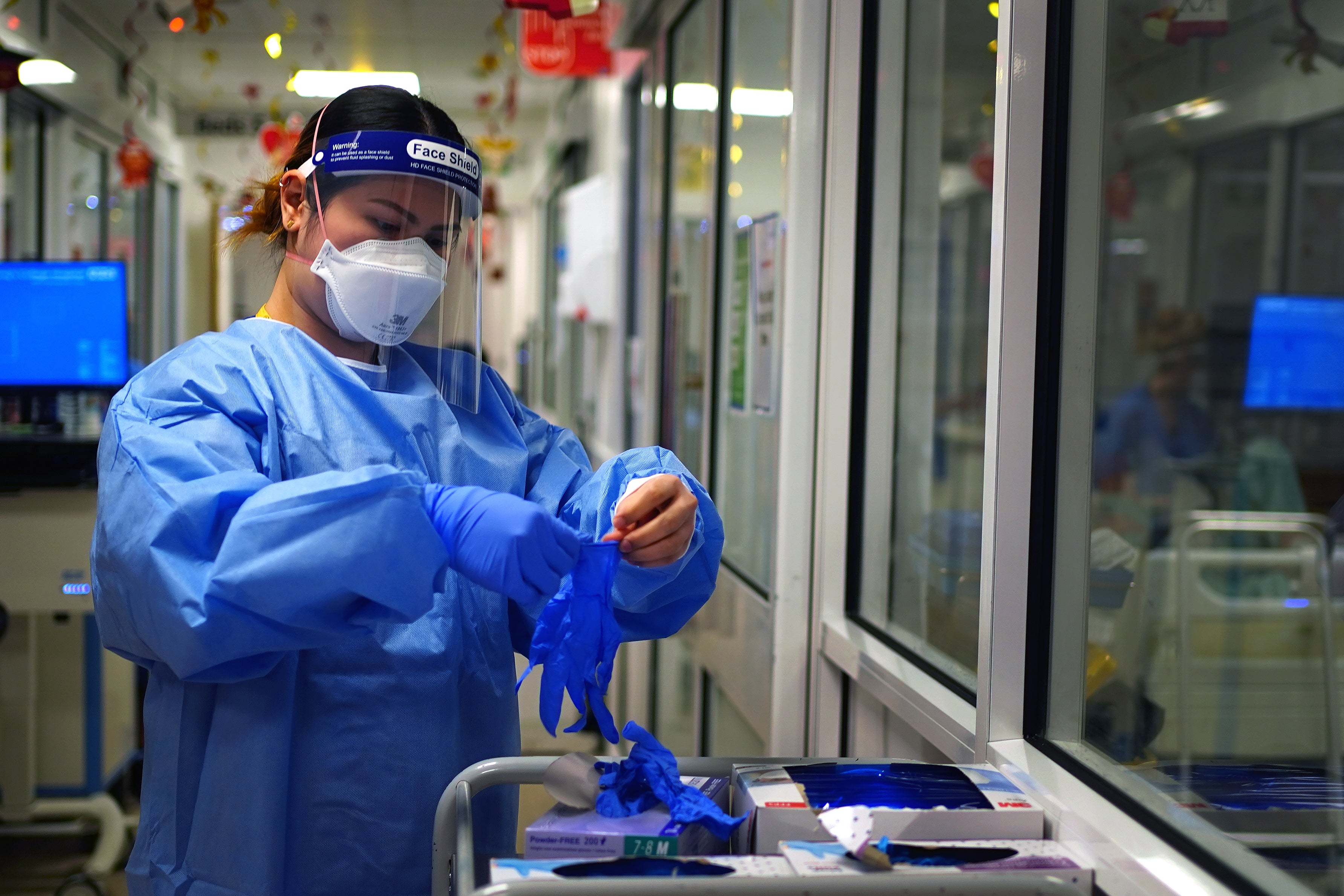
The government could have saved close to £1bn in taxpayers’ money had it agreed to issue multi-use protective gowns for NHS staff instead of single-use, The Independent has been told.
Analysis presented to Whitehall and NHS officials in spring 2020 shows that, within a single month, the British manufacturing industry could have made three million gowns that could be re-worn by staff and washed up to 100 times.
This supply of personal protective equipment (PPE) would have lasted for the first two years of the pandemic and, in the process, saved more than £800m, according to figures and estimates compiled by the Textile Services Association (TSA), which represents laundry businesses that supply the NHS.
But the government eventually approved the mass rollout of single-use gowns instead – despite the higher overall costs and larger carbon footprint.
Separate analysis commissioned by the Cabinet Office shows that the carbon output associated with making, transporting, wearing and then disposing of a UK-made, single-use gown is 1,164 per cent larger than that of a multi-use gown.
An estimated 460,000 single-use gowns were being worn and then thrown away by staff every day during the first peak of the pandemic, according to TSA estimates.

David Stevens, chief executive of the TSA, said: “Looking at the numbers, you can’t not say this wasn’t a much better solution. It’s half the money, a 1,000 per cent less carbon footprint, much more robust. It’s all onshore, good for the UK, made in Britain. There’s not a box it doesn’t tick.
“We only needed at peak three million gowns because you pick them up every week, you wash them and you send them back.
“A one-off commitment to a multi-use solution would have lasted two years, and even then, could have put them back into storage in a reasonably small warehouse ready for a next potential outbreak.”
The TSA took part in discussions over multi-use gowns with officials from the Cabinet Office, the Department of Health and Social Care (DHSC) and NHS Improvement.
It claims its strategy was elevated to ministers but never acted upon. Instead, the government relied upon overseas and British manufacturers to produce single-use gowns en masse.
Factories in the UK that were handed contracts for the single-use gowns had the equipment and means for making multi-use gowns, the TSA said. In some cases, factories had to redesign their workshop to design the gowns.
Some 20,000 laundry staff were kept at home on furlough for much of the pandemic but could have been called upon to wash multi-use gowns every week, Mr Stevens said, adding that this would have kept a segment of the economy ticking over.
Estimates suggest TSA members would have needed to wash 2 million gowns a week during the most demanding periods of the pandemic. Despite government concerns over the ability to meet this demand, the sector has capacity to wash up to 50 million gowns each week, Mr Stevens said.
The TSA suspects that the single-use gown strategy was adopted as it proved more lucrative for those companies with personal links to the government.
“Existing gown manufacturers in the UK were being totally bypassed because they haven’t got government connections,” said Mr Stevens. “A lot of deals were being done with single-use manufacturers without a fair and open tendering process.”
He said that one of the key reasons conversations with the government broke down was because consultants and Whitehall officials involved in discussions kept changing roles in the spring of 2020.
“There were several individuals in each of these government agencies who understood the benefits of a sustainable and economical reusable strategy,” added Shyju Skariah, director of programmes and projects at TSA. “However, the public procurement system was not designed flexible enough to manage a crisis moment.
“Everybody was panic buying and somebody said we need protective gowns, and we need 460,000 a day. [Then US president Donald] Trump was trying to buy all the fabric in the world. So there was a sort of panic out there.”
A DHSC spokesperson said: “To save lives, we focused our efforts, resources and attention on sourcing PPE. We continue to stand by the efforts we made at the height of the early pandemic to prioritise and protect our staff in the frontline.”
The DHSC said it received an “extraordinary response” to its “call to arms for new suppliers of PPE” in April 2020 and “delivered over 19.8 billion items of PPE to protect our frontline workers” — a fifth of which was provided by 30 UK-based companies.
The spokesperson added: “It is misleading to suggest suppliers were prioritised because of political connections.”







